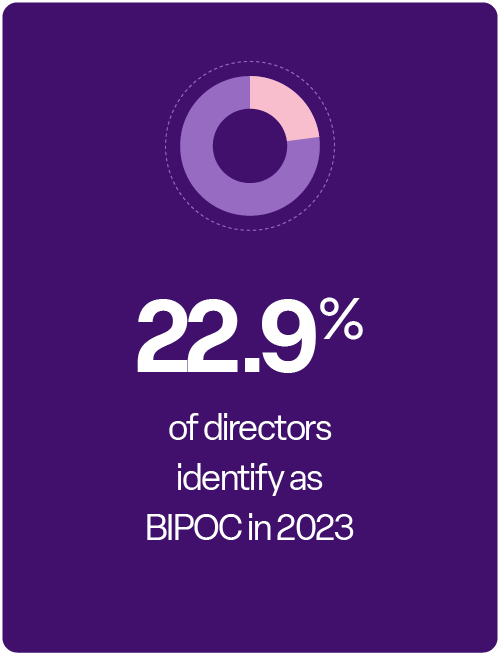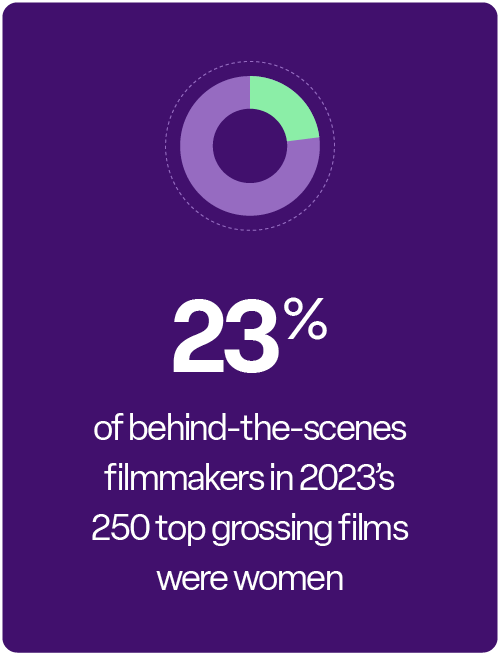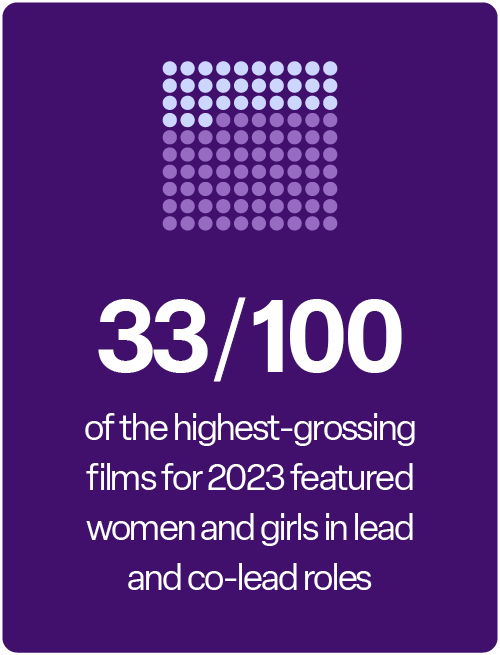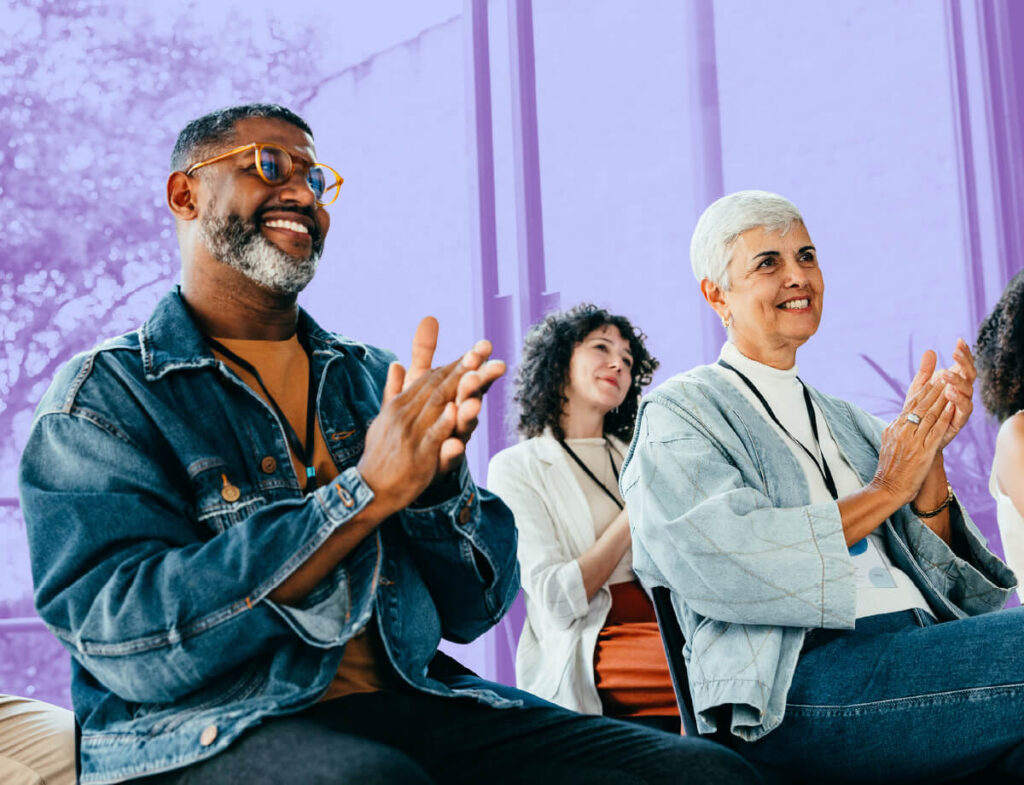Training a new generation of storytellers for justice
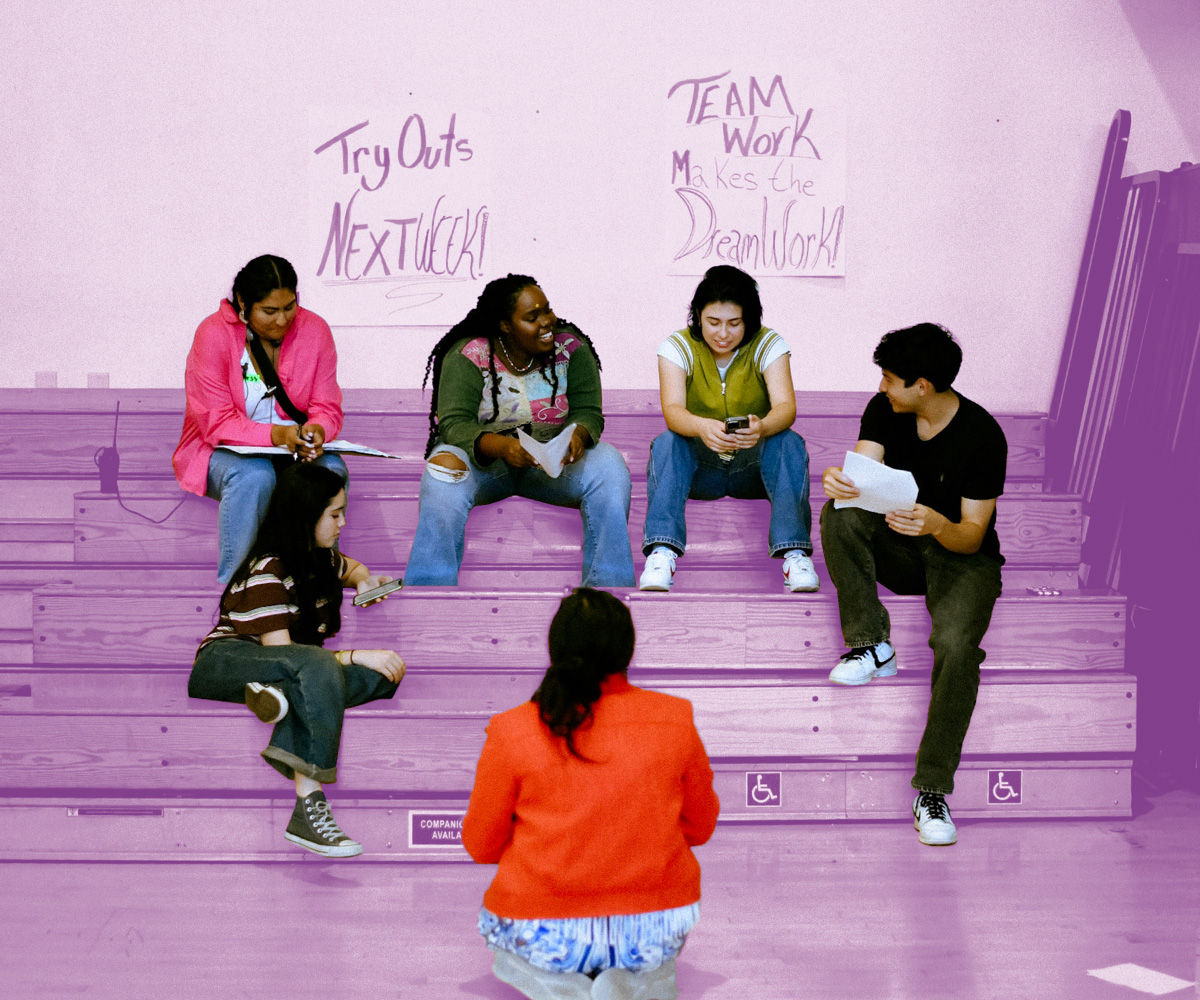
Overview
The healing power of art
“Art is healing – it’s a way that we can reshape the narrative of victim-blaming through storytelling,” says Kimberly Bautista, a Colombian-American writer, director, and producer. She’s also the founder and executive director of Justice For My Sister (JFMS).
In 2011, Kimberly was inspired to highlight the wide-reaching impacts of femicide, the murder of women and girls, in her feature-length documentary, Justice for My Sister. The award-winning film focused on the story of Rebecca, a woman in Guatemala who spent three years bringing her sister’s killer to justice. What began as a passion project turned into a movement – it not only informed and activated those who watched it, it inspired people to tell their own stories. Kimberly has been empowering those storytellers ever since.
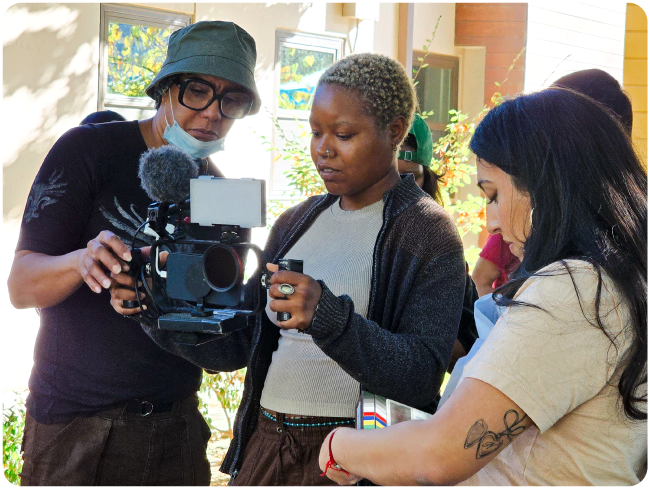
Founded as a nonprofit in 2015, JFMS is based in Los Angeles and has grown to offer media literacy, economic sustainability, and job-training programs. Its work promotes diversity, inclusion, accessibility, and equity in TV and film, creating pathways for underrepresented voices to thrive.
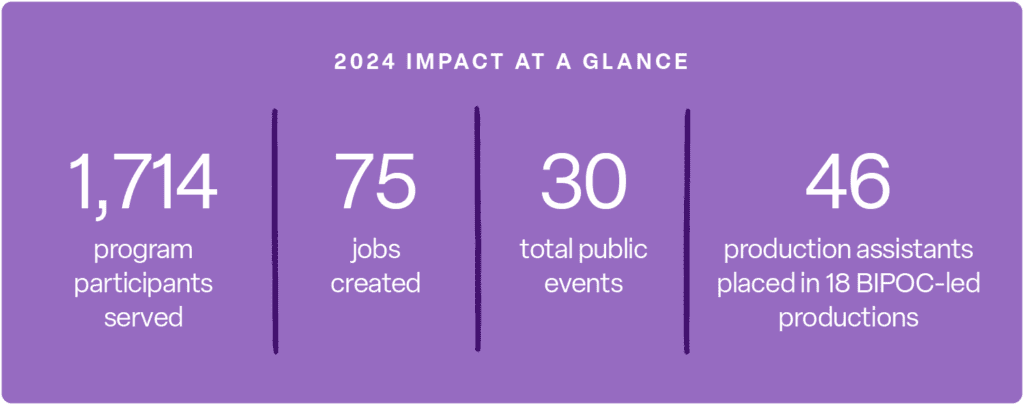
The barriers to storytelling for BIPOC women in film
Challenges
Stories of strength, told with empathy
Shining a light on femicide, domestic violence, and other injustices that affect women and marginalized groups can influence public sentiment and lead to policy changes. But there are barriers to accessing platforms and artistic mediums for these storytellers. Women are a minority in behind-the-scenes filmmaking today. Not only are systemic limitations an issue, a major challenge in addressing sensitive topics is ensuring the process and resulting film are not re-traumatizing for the participants and viewers.
For these reasons, JFMS centers their program access to women, people of color, those in the LGBTQIA+ communities, and foster youth. JFMS selects artists from groups that have been historically locked out of filmmaking and trains them in trauma-informed processes that consider the well-being of those at the center of the project’s story. The organization accepts applications for youth starting at age 10 for their programs that focus the frame on education, while helping students understand how to keep truth at the heart of the story. “Obtaining the skills to tell stories centered on those who are most impacted fuels understanding and action,” says Kimberly.
Filmmakers and artists must also care for themselves through the process. “How can we take care of ourselves as activists so that we can really continue to fuel the movement from a place of replenishment, as opposed to just overextending ourselves and wearing ourselves into the ground?” asks Kimberly.
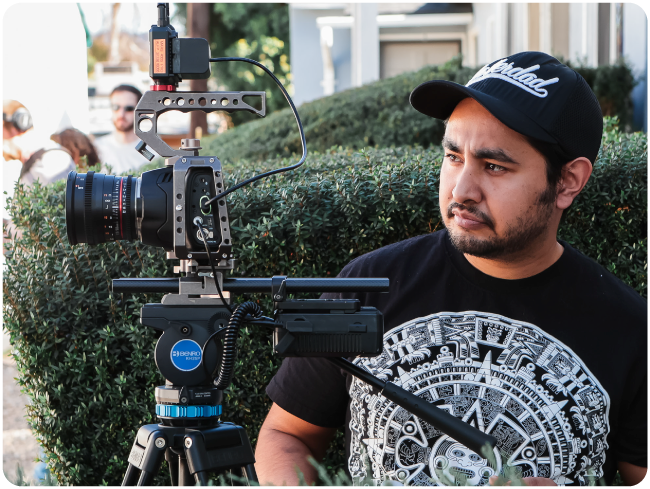
Additionally, funding for the arts isn’t easy to come by. JFMS is supported by individual donors, grants, and federal funding. In fact, about 70% of the organization’s contracts and financial support come from government funding. Recently, the new administration’s approach to funding introduced incredible uncertainty and highlighted the need to diversify their income streams to maintain and grow operations.
Solution
Programs educate and empower participants
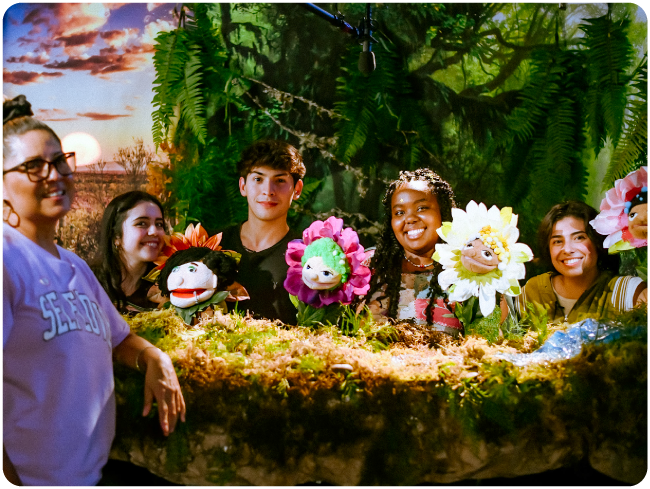
Part of JFMS’s approach is to stop gender-based violence before it begins. The programs offered serve as pathways to empowerment, healing, and creative transformation. With the Youth Justice Arts Project, students explore filmmaking, mural-making, ceramics, and other creative mediums. The Teen Dating and Healthy Relationships Program gives students tools to recognize and prevent cycles of violence. The BIPOC Sci-Fi Screenwriting Lab supports storytellers in crafting original TV pilot scripts in the science fiction and fantasy genres, and the Production Assistant Certification Program provides 100-hour training that equips aspiring filmmakers with the skills and hands-on experience to succeed in the TV and film industry.
One participant in the screenwriting lab said, “The single most valuable aspect of this lab was the ability to be in community not only with fellow screenwriters, but with other people of color with shared values of telling stories rooted in transformation, community care, spirituality, ancestor work, growth, healing, and self-care. The stories that my classmates were working on inspired me beyond belief. Knowing that there are other writers working on stories such as these filled me with so much hope and inspiration.”
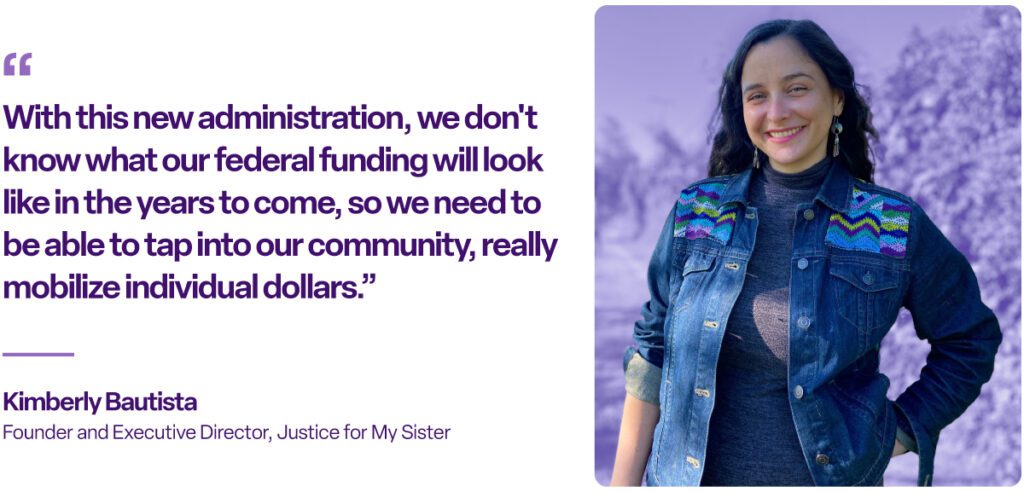
As it looks to diversify its fundraising sources, Bonterra’s donor management software will be a key piece of the solution. “This is an incredible avenue; having a platform where we can really track and engage our donors in a way that’s very meaningful and tailored to our own voice and our own ethos is so valuable for us,” says Kimberly.
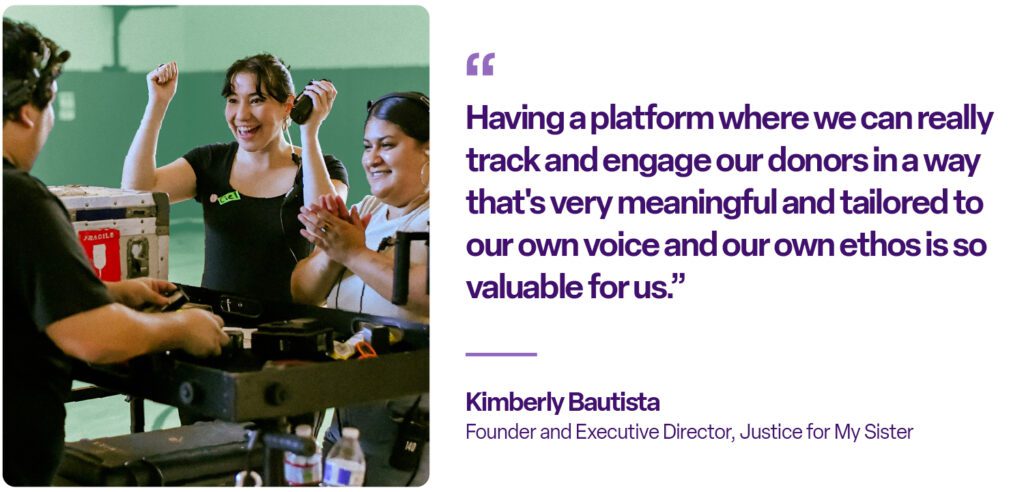
Impact
Amplifying voices and opportunities
In the last 10 years, JFMS has impacted the lives of over 10,000 people in Southern California. Its mission to help participants turn trauma into healing to promote racial equity and gender justice, has resulted in impactful works of art.
Looking ahead, JFMS would like to scale its production company to better support underrepresented storytelling, expand opportunities to showcase students’ work and connect them to employment, and find new distribution pathways to give more exposure to underrepresented voices and stories.
“Gender equality doesn’t mean that we’re the same; it means that we’re both valuable,” says Kimberly. “Domestic violence is not just a women’s issue. It’s also about empowering men to be allies to each other and to be role models and peers.”
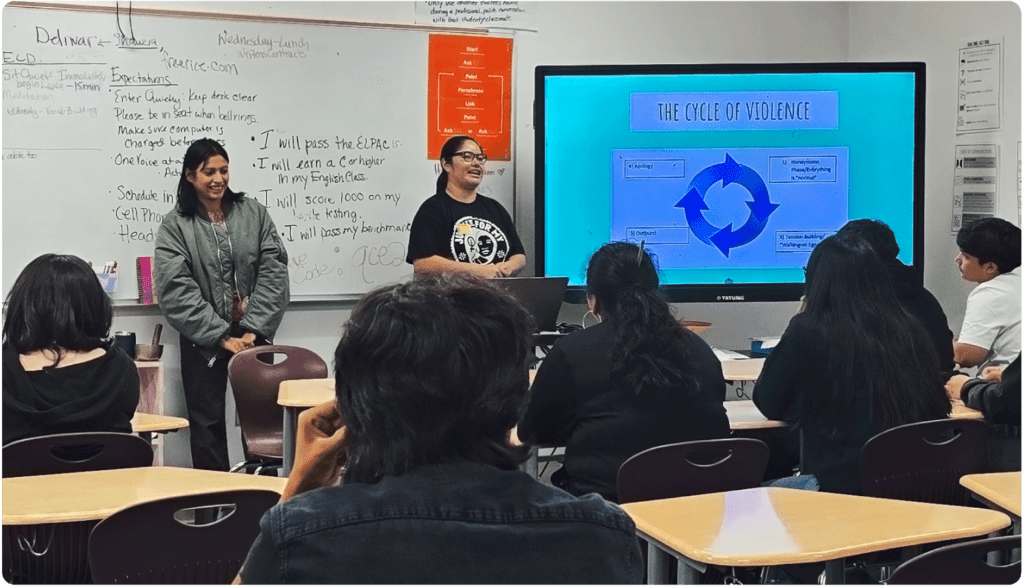
Led by the compassion she has for fellow storytellers and the resilience gained from her own experiences, Kimberly will continue to champion her sisters in storytelling. She advises other nonprofit leaders to center their foundation around what matters most. “Choose your values and run your decisions through those values,” she says. “Use them as a lens to make decisions as a filter.”
Visit Justice For My Sister online if you would like to contribute to its programs and expand the voices of emerging filmmakers.
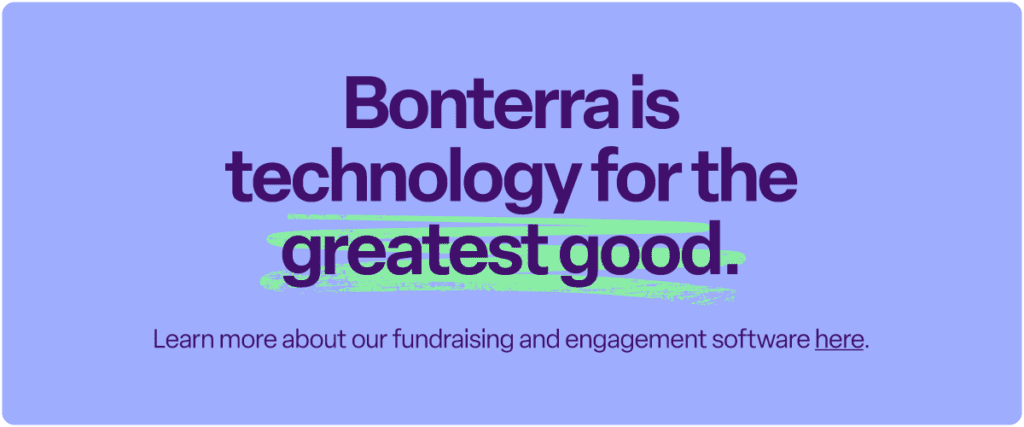
Work with Bonterra
